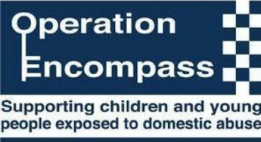As part of our ongoing safeguarding and child protection duties we fully support the Government’s PREVENT strategy.
At St Martin’s we build pupils’ resilience to radicalisation by promoting fundamental British Values. Our approach is very much part of our curriculum, culture and processes. We see it as an integral aspect in promoting the safeguarding and well-being of our children.
The Prevent Strategy
Prevent is a government strategy designed to stop people becoming terrorists or supporting terrorist or extremist causes. The Prevent strategy covers all types of terrorism and extremism, including the extreme right wing, violent Islamist groups and other causes.
Since July 2015 all schools have a duty under section 26 of the Counter-Terrorism and Security Act 2015, in the exercise of their functions to have “due regard to the need to prevent people from being drawn into terrorism” This duty is known as the PREVENT Duty for schools.
This means that we have a responsibility to protect children from extremist, extreme or violent views.
Importantly, as an educational setting we can provide a safe place for pupils to discuss these issues so that they better understand how to protect themselves. We feel that it is important for children to have access to an environment in which they feel safe to discuss challenging views.
What does this look like in school?
Many of the things that we already do in school to help children become positive , happy members of society help contribute to the Prevent strategy. This includes exploring other cultures, developing thinking skills and a positive self - identity and promoting the spiritual, moral, social and cultural development of pupils, as well as British values such as democracy.
We also protect children from radicalisation, for example by using filters on the internet to ensure children are not able to access extremist material.
St Martin’s Values
Designated PREVENT Leads
The Designated PREVENT Leads are Mrs R Rought (Headteacher) and Mrs K Lees (Deputy Headteacher).
Our PREVENT Governor is Mrs V Kavanagh (Chair).
PREVENT Training
The statutory guidance refers to the importance of PREVENT awareness training to equip staff to identify children at risk of being drawn into terrorism and to challenge extremist ideas.
NSPCC: Parents worried about radicalisation
At the NSPCC, we understand that when a young person's behaviour changes, it can be concerning. If you're worried about a child, even though it might be nothing, there's no harm in talking it through. For help and support, call our helpline anytime on 0808 800 500 or visit
NPSCC: Protecting Children from Radicalisation
Watch: NSPCC: Parents worried about radicalisation
Reporting concerns
Report illegal or harmful information, pictures or videos you've found on the internet. You can make your report anonymously. If you need to make a report you can use the link below:

